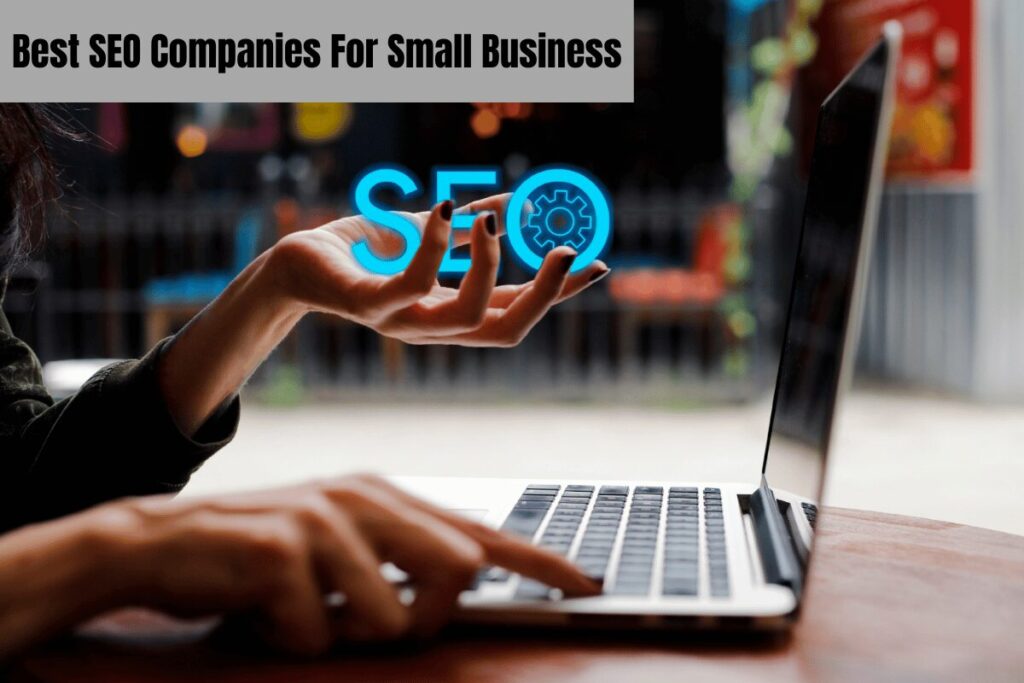
Top SEO Companies for Small Businesses: Boost Your Online Presence
How ToFinding the Best SEO Companies for Small Business (Without Losing Your Mind) Let’s be real: choosing an SEO company feels a bit like online dating. Swipe left on the overly flashy ones, swipe right on the ones that seem trustworthy, and pray you don’t end up ghosted after paying the bill. But hey, we’ve all been there—especially us small business owners juggling 10,000 tasks while Googling “Why isn’t my website showing up?!” at 2 a.m. At Sitelinx Organic SEO Agency here in Los Angeles, we’ve spent years untangling the SEO chaos for businesses like yours. Today, we’re breaking down how to spot the best SEO companies for small business—no jargon, no fluff, just straight talk (and maybe a sarcastic joke or two). Let’s get into it. What Makes an SEO Company the “Best” for Small Businesses? Hint: It’s not just about who shouts “WE’RE THE BEST!” the loudest. The right SEO agency balances expertise, affordability, and actual results. Here’s what we’ve learned from both sides of the fence: Local SEO Expertise: Because “Near Me” Searches Aren’t Going Away If your ideal customer isn’t within 50 miles, skip this. For everyone else? Local SEO is your golden ticket. The best SEO companies for small businesses understand hyper-local strategies, like optimizing for “Los Angeles coffee shops” instead of just “coffee shops.” (FYI, that’s where we shine at Sitelinx—our team lives and breathes SoCal markets.) Pro tip: Ask if they’ll handle your Google Business reviews and local listings. If they shrug? Swipe left. Transparent Pricing (No “Surprise” Fees) We’ve heard horror stories: “That’ll be $5,000 extra for technical SEO services no one explained.” Nope. The best SEO company offers clear packages or custom quotes upfront. Look for: Monthly retainers under $1,500 (unless you’re scaling fast). Breakdowns of services like WordPress SEO services or website management. No lock-in contracts. Because trust works both ways. Proven Results… That You Can Actually Understand Any SEO specialist can throw around terms like “algorithm updates” or “backlink velocity.” But can they explain how their work will boost your sales? Look for case studies, before/after traffic stats, and yes—happy clients. Key Services Your SEO Company MUST Offer Not all SEO services are created equal. Here’s our “must-have” checklist: Technical SEO Audits: Because even the prettiest website won’t rank if it’s slower than dial-up. Content Strategy: Blogs, product pages, actual words people want to read. Local SEO: Google My Business optimization, local keywords, and review management. WordPress SEO Services: If your site runs on WordPress (and 43% of the web does), you need experts who speak its language. Ongoing Support: SEO isn’t a “set it and forget it” crockpot meal. Fun fact: At Sitelinx, we’ve rescued dozens of WordPress sites from the “SEO graveyard” (usually after a DIY plugin disaster). Top Contenders for Best SEO Companies for Small Business Let’s cut to the chase. Here’s a quick comparison of what’s out there: Company Specialty Pricing Best For Sitelinx Organic SEO Local SEO, WordPress, Technical SEO $800–$1,500/month Small businesses in competitive local markets Agency A National SEO, E-commerce $2,000+/month Scaling brands with big budgets Agency B Content Marketing $1,200–$2,000/month Blog-heavy sites or publishers Why we’re biased (but honest): Most small businesses don’t need the “big agency” price tag. Sitelinx packs enterprise-level technical SEO services into budgets that won’t make your accountant cry. “But Wait, How Do I Really Know They’re Good?” Glad you asked. Here are 3 red flags to avoid: They promise #1 rankings in a week. (Unless they’ve hacked Google, which… no.) No access to your analytics. Transparency is key. They’ve never heard of your city. If you’re a San Diego bakery, a New York marketing consultant might miss local nuances. Why Sitelinx Stands Out in the SEO Crowd Shameless plug? Maybe. But here’s why we’ve earned it: We’re locals. Born and raised in LA, we know how to rank you in your backyard. WordPress nerds. From speed optimization to plugin cleanups, we speak WordPress fluently. No upsells, no BS. You’ll get a dedicated SEO specialist—not a salesperson. Case in point: We helped a local HVAC company double their organic traffic in 4 months by fixing their Google Business reviews and optimizing service pages. (And yes, they’re still crushing it.) FAQ: Your Burning SEO Questions, Answered 1. “How much should SEO cost for a small business?” Between $500–$1,500/month for most. Anything lower might cut corners; higher could overcharge. 2. “How long until I see results?” 3–6 months for steady growth. If someone says “overnight,” run. 3. “Do Google reviews really matter for SEO?” YES. They boost local rankings and trust. We call them “digital word-of-mouth.” Ready to Ditch the SEO Headache? Let’s face it: You didn’t start your business to stress over meta tags or website management. The best SEO companies for small business take that weight off your shoulders—so you can get back to what you actually love doing. At Sitelinx Organic SEO Agency, we’re not just another SEO company. We’re your partner in growth, your WordPress whisperers, and your local SEO champions. Oh, and we’ll make sure you never have to Google “Why does my website suck?” again. So… when’s your next coffee break? Let’s chat about your SEO goals over a virtual cup. (We promise no robotic sales pitches—just real talk.) Keywords seamlessly included: Local SEO, SEO company, WordPress, best SEO company, SEO agency, Google Business reviews, SEO specialist, SEO services, marketing consultant, website management, technical SEO services, best SEO companies for small business, WordPress SEO services.

Ultimate Guide to Starting a Plumbing Business in 2025
How ToHow to Start a Plumbing Business (Without Flooding Your Savings) Alright, friends—let’s talk pipes, wrenches, and making money. Starting a plumbing business isn’t just about fixing leaks or unclogging drains (though that’s a big part of it). It’s about building a brand, mastering marketing, and avoiding the kind of mistakes that leave you knee-deep in… let’s call it “organic matter.” Been there? No? Good. Let’s keep it that way. We’ve helped dozens of tradespeople launch their businesses here in Los Angeles, and trust us—there’s a right way to do this. Buckle up. Step 1: Get Licensed and Insured (Because You Can’t Wing This) First things first: you’re not a rogue handyman anymore. Plumbing requires licenses, permits, and insurance. Skip this, and you’ll face fines bigger than the hairball in Aunt Edna’s shower drain. Licenses and Permits Research your state requirements: California? You’ll need a C-36 license. Other states vary. Apprenticeship hours: Most require 4–5 years under a licensed pro. Exam prep: Study like it’s your wedding day and the test is your future in-laws. Insurance Basics General liability: For when you accidentally flood a client’s heirloom Persian rug. Workers’ comp: Even if it’s just you and your dog, Rover. Commercial auto: Because your ‘98 pickup isn’t cutting it for “professional” vibes. Pro Tip: Partner with a marketing consultant early. We learned the hard way that no one hires a plumber they can’t Google. Which brings us to… Step 2: Build Your Brand (More Than Just a Cool Logo) Your brand is why someone picks you over Larry’s “Pipe Dreams” down the street. Name Your Business Avoid puns like “The Sink Stops Here” (unless you want eye-rolls with every invoice). Go for clear, trustworthy, and searchable. Think “LA Premier Plumbing” or “SwiftFlow Solutions.” Design a Memorable Logo Keep it simple: A wrench + water droplet ≠ originality. Colors matter: Blue = trust. Red = urgency. Neon green = “we also unclog raves?” FYI—your website’s next. And if you’re using WordPress (which we love for DIYers), don’t skip WordPress SEO services. Without them, your site might as well be a digital paperweight. Step 3: Set Up Your Online Presence (Where Google Becomes Your Best Friend) Raise your hand if you’ve ever Googled “plumber near me” at 2 a.m. during a toilet crisis. Exactly. Your online presence isn’t optional—it’s your 24/7 salesperson. Website Essentials Fast loading times: If your site takes longer to load than a toddler putting on shoes, you’ve lost the job. Mobile-friendly design: 70% of searches happen on phones. Clear calls to action: “Call Now” buttons > abstract poetry about pipes. Local SEO Magic Here’s where Local SEO shines. Optimize your site for phrases like “emergency plumber in [Your City],” and claim your Google Business Profile. Fill it with photos, updates, and respond to Google Business reviews like they’re texts from your mom. But let’s be real: SEO’s trickier than threading a pipe in a crawlspace. That’s why we team up with Sitelinx Organic SEO Agency here in LA. They handle technical SEO services, keyword strategies, and website management so we can focus on, you know, actual plumbing. Step 4: Market Like a Pro (Without Breaking the Bank) Marketing’s not just for tech bros and influencers. Here’s how to do it without selling your soul (or your tools). Google Business Reviews Ask happy clients to leave reviews. Offer a discount for their next service—it’s cheaper than ads. Respond to every review, even the Karens. A polite reply screams professionalism. Social Media & Community Hacks Post before/after shots of nasty jobs (gross = engagement gold). Partner with local hardware stores for cross-promotions. IMO, hiring an SEO specialist is worth every penny. Sitelinx (yep, them again) is one of the best SEO companies for small business—they’ve got our Google rankings flowing smoother than a new gutter. Step 5: Manage Operations (Because Paperwork Sucks, But It’s Necessary) You didn’t start a plumbing biz to push paperwork, but here we are. Pricing Strategies Hourly vs. flat rates: Flat rates for simple jobs (unclogging), hourly for “surprise, your pipes are possessed” situations. Competitor research: Don’t be the cheapest—be the clearest. Hiring Your First Team Start with subcontractors to avoid full-time costs. Use apps like Jobber for scheduling and invoices. Step 6: Grow and Scale (Because Stagnation is for Pipes, Not Businesses) Once you’re steady, it’s time to scale. Customer Retention Send maintenance reminders (e.g., “Your water heater’s older than TikTok—time for a checkup?”). Loyalty discounts for repeat clients. Expand Services Offer HVAC or electrical? Bundle them. Dive into commercial plumbing for bigger contracts. Your Plumbing Business Checklist Task Why It Matters Pro Resource Get Licensed Avoid legal nightmares State licensing board Build a Website Be findable 24/7 WordPress SEO services Optimize Local SEO Dominate “near me” searches Sitelinx Organic SEO Agency Set Up Insurance Sleep at night Local insurance broker 3 Common Questions (Answered Without the Jargon) 1. “Do I really need a website?” Yes. Unless you want clients to think you’re a ghost with a wrench. Even a simple site with your contact info and services builds trust. 2. “How much should I spend on SEO?” Start with $500–$1,500/month. SEO services are a long game—like planting a money tree. Water it, and it’ll grow. 3. “What if competitors undercut my prices?” Focus on quality and reviews. People pay extra for the plumber who shows up on time and doesn’t judge their questionable DIY attempts. Final Thoughts: Let’s Get Those Leads Flowing Starting a plumbing business is equal parts skill, strategy, and sweat. But with the right licenses, a killer online presence (hi, Sitelinx), and a dash of humor for those 3 a.m. emergencies, you’ll build something that lasts. Need help untangling Local SEO or optimizing your WordPress site? Hit up our pals at Sitelinx Organic SEO Agency—they’re the best SEO company this side of the Hollywood Sign. Now go fix some pipes (and maybe buy a backup plunger). 🙂

Ultimate Guide to Starting a Fencing Company in 2025: Tips & Strategies
How ToHow to Start a Fencing Company (Without Stabbing Yourself in the Foot) So, you’ve decided to start a fencing company. Nice! Whether you’re a seasoned contractor looking to branch out or a DIY warrior ready to turn your backyard hobby into a business, we’re here to help you nail this. Starting a fencing biz isn’t just about swinging hammers and digging post holes—though there’s plenty of that. It’s also about strategy, branding, and not accidentally becoming the neighborhood’s most infamous yard-art installer. Let’s break it down step by step. Step 1: Know Your Market (Or Risk Building Fences to Nowhere) Before you buy a single plank, figure out who needs fences in your area. Spoiler: Everyone thinks they need a fence until they see the quote. Do your homework: Research Like a Detective Local demand: Check zoning laws, neighborhood trends, and seasonal needs (e.g., pool fencing in summer). Competition: How many “Bob’s Fencing & More” ads pop up on Google? What gaps can you fill? Pricing: Charge too much, and you’ll scare folks off. Charge too little, and you’ll work yourself into the ground. Pro tip: Add 15% to your initial estimate—trust us, you’ll need it. Pick Your Fencing Flavor Wood? Vinyl? Chain-link? Or go niche with eco-friendly bamboo (because someone’s gotta cater to the yoga studio crowd). Specializing helps you stand out. For example, we know a contractor in LA who dominates the “luxury privacy fence” market. How? Local SEO, baby. They partnered with Sitelinx Organic SEO Agency to crush local search rankings. FYI, if you’re in LA, these folks are the best SEO company for small businesses. Just saying. Step 2: Legal Stuff (The “Boring but Critical” Section) Let’s rip this Band-Aid off fast: Licenses: Most states require a contractor’s license. Check your local requirements unless you enjoy courtroom drama. Insurance: General liability + workers’ comp. Because “Oops, I smashed your client’s prized gnome” isn’t a viable business model. Business Structure: LLCs are popular for liability protection. Talk to a lawyer—not your cousin who “watched a TikTok about it.” Step 3: Build a Website That Doesn’t Look Like a 2005 Geocities Page Your website is your digital storefront. Make it count. WordPress Is Your Friend (Mostly) We love WordPress for its flexibility. It’s like Legos for websites—easy to customize, even if you’re not a coding wizard. But here’s the kicker: A pretty site means nothing if Google can’t find it. That’s where WordPress SEO services come in. Tools like Yoast SEO help, but partnering with an SEO specialist (like our friends at Sitelinx) ensures your site doesn’t get lost in the internet void. Google Business Profile: Your New Bestie Claim your profile, add photos of your work, and beg—er, politely ask—for Google Business reviews. A 4.8-star rating screams credibility. And if managing this feels overwhelming, Sitelinx Organic SEO Agency offers technical SEO services to keep your profile sharp. Step 4: Market Like You Mean It (Because “Build It and They Will Come” Is a Lie) Time to hustle. Here’s how: Local SEO: The Secret Sauce Optimize your site for phrases like “fencing company in [Your City].” Use location pages, blog about local trends (“Why Phoenix Homeowners Love Iron Fences”), and get listed in directories. Local SEO is how you outrank Bob’s Fencing. Social Media: Show Off Those Fence Selfies Post before/after shots, share client testimonials, and maybe even a blooper reel (because who doesn’t love watching someone trip over a post hole digger?). Use hashtags like #FenceGoals or #NotJustForDogs. Old-School Tricks Still Work Yard signs at job sites. Flyers at hardware stores. Partner with landscapers or pool installers. Step 5: Don’t Ignore the Backend (Unless You Enjoy Chaos) Pricing: Math Is Hard, but Necessary Here’s a quick formula: Material Cost + Labor (pay yourself too!) + 20% Profit Margin = Your Price If math isn’t your thing, hire a marketing consultant to help. Tools of the Trade Post hole diggers (manual or auger). Levels, saws, and a lot of screws. A reliable truck. Pro tip: Avoid the “$500 Craigslist special” unless you enjoy hitchhiking. Step 6: Scale Without Losing Your Mind Hire Help (Or Go Full Zombie Mode) Start with subcontractors, then hire full-time once you’re booked solid. Train them well—your reputation is on the line. Keep Clients Coming Back Follow up post-installation. Offer maintenance packages or discounts for referrals. A simple “How’s your fence holding up?” email works wonders. FAQ: Your Burning Questions, Answered Q: How much does it cost to start a fencing company? A: Roughly $10k–$50k for licenses, insurance, tools, and marketing. Skip the fancy office—start from your garage. Q: Do I need a contractor’s license? A: In most states, yes. Check local laws or risk becoming besties with a judge. Q: How do I compete with established companies? A: Local SEO, niche services, and stellar reviews. Or, team up with the best SEO companies for small business (cough Sitelinx cough) to level the playing field. Final Thought: Fencing Is More Than Posts and Panels Starting a fencing company is equal parts sweat, strategy, and stubbornness. Build a solid foundation, invest in website management and SEO services, and don’t forget to laugh when things go sideways (they will). And hey, if you’re in LA and want to skip the trial-and-error phase, give Sitelinx Organic SEO Agency a shout. They’ll handle the digital heavy lifting so you can focus on what you do best—building fences that make neighbors jealous. 😉 Now go forth and conquer. And maybe buy a better pair of work gloves.

Ultimate Guide to Launching a Successful Pest Control Business in 2025
How ToHow to Start a Pest Control Business: A No-BS Guide for Go-Getters So, you’ve decided you’re done with the 9-to-5 grind and want to start a pest control business. Maybe you’re tired of office politics, or perhaps you just really, really hate bugs. Either way, we’re here to help you turn that “bug squashing” passion into a legit business. Let’s roll up our sleeves and break this down—because let’s face it, nobody wants to wing it when cockroaches (or competitors) are involved. Why Pest Control? (Spoiler: It’s Not Just About the Spray) First things first: why pest control? Well, pests aren’t going anywhere. Seriously, they’ve survived dinosaurs, climate change, and even that time you accidentally left pizza in the oven for a week. Demand is steady, margins are solid, and with the right hustle, you can build a business that’s both profitable and weirdly satisfying. But here’s the kicker: you’re not just selling bug spray. You’re selling peace of mind. Whether it’s a family terrified of termites or a restaurant owner battling roaches, your job is to be the hero—minus the cape (though we won’t judge if you wear one). Building Your Pest Control Empire: Step-by-Step 1. Get Licensed (Because Jail Isn’t a Great Business Model) Every state has different rules, but here’s the gist: Study for exams: Most states require pest control licenses. Think of it as SATs, but with more termite diagrams. Insurance: General liability and workers’ comp. Because accidentally spraying a client’s cat isn’t a good look. EPA certification: Mandatory if you’re handling chemicals. Pro tip: Don’t skip this unless you enjoy fines. 2. Choose Your Niche (Spiders? Bed Bugs? Weirdly Specific Rodents?) Specializing saves time and money. Here’s the breakdown: Residential: Steady work, but you’ll deal with a lot of “Is this a bed bug?” texts at 2 a.m. Commercial: Restaurants, hotels, offices—bigger contracts, but higher stakes. Eco-friendly: Charge premium prices for organic solutions. Bonus: You get to feel like a planet-saving superhero. 3. Gear Up Without Going Broke Start small. You don’t need a tricked-out van on day one. Essentials include: Sprayers, baits, and traps (the basics, not the $500 “deluxe” model). Protective gear: Gloves, masks, and goggles. Fashionable? No. Necessary? Absolutely. A reliable vehicle: Even a used SUV works. Just avoid the one that smells like old tacos. Marketing Your Biz: How to Outshine the Competition Let’s be real: If your marketing plan is a Facebook post and prayers, you’ll get buried faster than a possum playing dead. Here’s how to stand out: Local SEO: Your Secret Weapon Google’s algorithm is like a picky eater—it needs the right ingredients to love you. Enter Local SEO. Optimize your Google Business Profile, collect Google Business reviews, and dominate local search terms like “best pest control near me.” FYI, our friends at Sitelinx Organic SEO Agency in Los Angeles are wizards at this. They’ve helped tons of small businesses (yes, even pest control) crush local search rankings. If you’re sweating over keywords, maybe shoot them a message. Just saying. Website Management: Don’t Let Yours Look Like a 2005 Geocities Page Your website is your digital storefront. Use WordPress—it’s user-friendly and SEO-friendly. Need WordPress SEO services? Sitelinx specializes in making sites Google’s BFF. Quick checklist for your site: Mobile-friendly design: Because nobody’s booking you from a desktop in 2024. Clear service pages: “Ants,” “Rodents,” “Mystery Critters”—make it easy to navigate. Blogs with keywords: Write about “How to Prevent Bed Bugs” or “Why Organic Pest Control Rocks.” Paid Ads & Social Media: Because Word of Mouth Only Goes So Far Google Ads: Target local searches like “emergency pest control [Your City].” Facebook/Instagram: Post before-and-after videos. Nothing says “trust us” like watching you evict a wasp nest. Scaling Up: From Solo Gig to Boss Mode Once you’ve got steady clients, it’s time to grow. Here’s how: Hiring Your First Techs Look for folks who are: Reliable: Showing up matters more than knowing 50 spider facts. Personable: Clients don’t want a Terminator in their kitchen. Certified: Train them properly. Bad reps sink ships faster than rats gnawing hulls. Invest in Technical SEO Services As you scale, your website needs to keep up. Technical SEO services (like fixing broken links or speeding up load times) ensure Google doesn’t ghost you. Sitelinx offers these too—because even the best SEO companies for small business know technical stuff is boring but essential. Automate the Annoying Stuff Use software for: Scheduling: Calendly or Jobber. Invoicing: QuickBooks or FreshBooks. Customer follow-ups: Automate emails asking for reviews. 3 Burning Questions (Answered Without the Fluff) 1. “How long until I’m profitable?” Most businesses break even in 6–12 months. Speed it up by nailing Local SEO and referrals. 2. “What if competitors undercut my prices?” Compete on quality, not price. Highlight organic options or 24/7 service. And hey, if you need a marketing consultant, Sitelinx can help you craft a killer USP. 3. “Do I need an SEO specialist?” IMO, yes. SEO isn’t a “set it and forget it” game. The best SEO agency (like our pals at Sitelinx) keeps your rankings climbing while you handle the bugs. Final Thoughts: Go Crush It (and Maybe Some Roaches) Starting a pest control biz isn’t glamorous, but it’s rewarding. Stay lean, market smart, and don’t skimp on website management or SEO services. And if you ever feel stuck? Remember, even the pros need help. Shameless plug: Sitelinx Organic SEO Agency in Los Angeles has your back. Whether it’s WordPress SEO services, Google Business reviews, or full-scale technical SEO, they’re the real deal. Tell them we sent you—they might even throw in a virtual high-five. Now get out there and show those pests who’s boss. 🙂

Ultimate Guide to Launching a Profitable Junk Removal Business in 2025
How ToHow to Start a Junk Removal Business (Without Losing Your Sanity) Let’s be real—starting a junk removal business sounds like a dirty job, right? But here’s the twist: it’s wildly profitable if you do it right. Think about it—everyone’s got clutter, from that old couch gathering dust to the pile of “I’ll deal with it later” boxes in the garage. And guess what? Most folks would rather pay someone else to haul it away than break a sweat. We’ve been there. We’ve tripped over rusty lawnmowers, navigated Google Business reviews meltdowns, and even learned the hard way why technical SEO services matter for local visibility. Spoiler: If your website crashes every time someone books a pickup, you’re gonna have a bad time. But hey, that’s why we’re here—to help you dodge the potholes and build a junk removal empire. Let’s get into it. Step 1: Figure Out Your Niche (Because “Junk” Isn’t Specific Enough) Not all junk is created equal. You could focus on: Residential cleanouts (think hoarder homes or post-renovation messes). Commercial clients (offices, landlords, or construction sites). Eco-friendly disposal (recycling 80%+ of what you haul). Why niche down? It’s easier to market yourself as the go-to expert. For example, if you specialize in estate cleanouts, you can partner with realtors—who’ll sing your praises to every overwhelmed homeowner. Pro Tip: Use Local SEO to dominate your area. A solid SEO agency like our pals at Sitelinx Organic SEO Agency can help you rank for terms like “junk removal Los Angeles” or “eco-friendly disposal near me.” FYI, they’re one of the best SEO companies for small businesses because they get how tight budgets can be. Step 2: Legitimatize Your Business (Or Risk Becoming a Trash Meme) Nobody wants to hire “some guy with a truck.” Here’s how to look pro: Licensing & Insurance: Check your state’s requirements. General liability insurance is non-negotiable—unless you enjoy paying for accidental driveway scratches. Business Structure: LLCs are popular for liability protection. Branding: A catchy name + a clean logo. Think “Junk Jedi” over “Bob’s Trash Service.” Fun Story: We once saw a competitor use Comic Sans on their trucks. Let’s just say… they didn’t last long. Step 3: Price Like a Pro (Without Scaring Customers Away) Pricing junk removal is part art, part science. Most companies charge by: Volume (e.g., truckload rates). Item type (mattresses cost more to dump than cardboard). Labor (stairs = $$$). Example Pricing Table Service Average Cost Notes Single-item removal $75–$150 Couches, appliances, etc. Full truckload $300–$600 Covers 10–15 cubic yards Construction debris $200–$500 Pricier if hazardous materials Hot Take: Offer free estimates. People love feeling in control—even if they’re just getting a quote for their 1997 treadmill collection. Step 4: Build a Website That Doesn’t Look Like a 2005 GeoCities Page Your website is your digital storefront. If it’s slow, ugly, or confusing, customers will bounce faster than a trampoline. Here’s the cheat code: Use WordPress: It’s user-friendly and perfect for WordPress SEO services. Plugins like Yoast SEO make optimizing content a breeze. Mobile-First Design: 60%+ of your traffic will come from phones. Clear Calls to Action: “Book Now” buttons, phone numbers, and a contact form. Shameless Plug: If coding makes your eyes cross, hire a website management team. Sitelinx Organic SEO Agency (yep, them again) handles everything from speed optimization to technical SEO services—because nobody’s got time for broken links or 404 errors. Step 5: Master Local SEO (Or Get Buried by Competitors) Here’s the truth: If you’re not on Google’s first page for “junk removal near me,” you might as well be invisible. Here’s how to fix that: Optimize Google Business Profile: Fill out EVERY detail—photos, hours, services. Encourage happy customers to leave Google Business reviews. Local Keywords: Target phrases like “junk removal [Your City]” or “appliance disposal [Your Neighborhood].” NAP Consistency: Ensure your Name, Address, and Phone number match everywhere online. Why Bother? Local SEO drives hyper-targeted traffic. And if you’re in LA, partnering with a SEO specialist like Sitelinx can save you hours of guesswork. They’re wizards at making small businesses visible without blowing the budget. Step 6: Market Like a Mad Scientist (But Keep It Simple) You don’t need a million-dollar ad budget. Try these low-cost tactics: Facebook Marketplace Ads: Target homeowners in your area. Partner with Realtors/Contractors: Offer referral fees for leads. Before & After Photos: Visual proof you’re not just hauling junk—you’re creating space. Bonus Tip: Run a “Spring Cleaning Special” or “Senior Discount” promo. People love feeling like they’ve scored a deal. Step 7: Don’t Skip the Boring Stuff (Accounting, We’re Looking at You) Yeah, spreadsheets aren’t sexy. But neither are IRS audits. Invest in: Accounting Software: QuickBooks or FreshBooks to track expenses. Route Optimization Apps: Save gas by planning efficient pickup routes. Customer Management Tools: A simple CRM to keep track of repeat clients. Lesson Learned: We once forgot to invoice a client for 3 months. Turns out, “My dog ate the paperwork” doesn’t work in real life. 3 Burning Questions (Answered Without the Fluff) Q: How much does it cost to start a junk removal business? A: Around $10k–$30k for a truck, insurance, licensing, and basic marketing. Start small—you can upgrade from a trailer to a fleet later. Q: Do I need employees right away? A: Nope! Plenty of owners start solo or with a partner. Hire help once you’re consistently booked. Q: How do I handle heavy or hazardous items? A: Check local regulations. Some states require special permits for electronics or chemicals. When in doubt, subcontract to licensed pros. Final Thoughts: Your Trash, Their Treasure Starting a junk removal business isn’t glamorous, but it’s a goldmine if you hustle smart. Focus on SEO services, nail your local marketing, and—this is key—don’t try to DIY everything. Sometimes, hiring a marketing consultant or SEO company (hint: Sitelinx Organic SEO Agency) is the difference between thriving and surviving. Still stuck? Shoot us a message. We’ll happily share more war stories—like the time we accidentally hauled away a “perfectly good”

Ultimate Guide to Starting a Successful Landscaping Business in 2025
How ToHow to Start a Landscaping Business (Without Losing Your Mind or Your Shovel) Let’s be honest: if you’re here, you’re probably the type who’d rather dig a 50-foot trench than sit through a business seminar. We get it—soil under your nails beats spreadsheets any day. But here’s the kicker: turning your green thumb into greenbacks means balancing passion with strategy. Don’t worry, though. We’ve got your back. By the end of this guide, you’ll know how to launch a landscaping business that thrives, whether you’re pruning hedges in Pasadena or laying sod in Santa Monica. And hey, if the marketing side makes your head spin faster than a leaf blower, we’ll toss in a few secrets from our pals at Sitelinx Organic SEO Agency—a killer SEO company in Los Angeles that’s helped folks like us dominate local search. Step 1: Plan Like a Pro (Because Wingin’ It Works Until It Doesn’t) Starting a landscaping biz isn’t just about mowing lawns and hoping Venmo notifications roll in. You need a roadmap. Pick Your Niche Are you the “designer” type who dreams of backyard oases? Or the “get-it-done” warrior who thrives on hardscaping? Here’s the deal: Residential vs. Commercial: Residential clients pay well but expect personalized service. Commercial gigs offer steady contracts but might require heavy equipment. Specialization: Drought-tolerant gardens? Artificial turf? Fire pits? Own a niche, and you’ll stand out in a sea of generic “lawn guys.” Crunch the Numbers Let’s talk startup costs. Spoiler: It’s not just shovels and seeds. Expense Low-End High-End Tools & Equipment $1,500 $10,000+ Vehicle (Truck/Trailer) $5,000 $30,000 Insurance $500/yr $2,000/yr Marketing $0 $5,000+ FYI: That “$0” marketing budget? That’s where Local SEO and Google Business reviews come in clutch. More on that later. Step 2: Legit-ify Your Business (Yes, That’s a Word Now) Legal Stuff You Can’t Ignore LLC vs. Sole Proprietorship: LLCs protect your personal assets when clients trip over your rake (trust us, it happens). Licenses: California requires a C-27 landscaping license. No shortcuts here—unless fines are your idea of fun. Insurance: General liability + workers’ comp if you hire a team. Bank Accounts Are Boring. Get One Anyway. Mixing business and personal funds is like using a chainsaw to trim bonsai trees—messy and dangerous. Open a business account, and thank us later. Step 3: Tools of the Trade (Or: How to Avoid Buying Junk) Essential Gear for Newbies Basic Tools: Shovels, pruners, wheelbarrow (the holy trinity). Power Equipment: Invest in a quality mower and trimmer. Cheap ones break faster than a New Year’s resolution. Safety Gear: Gloves, goggles, and steel-toe boots. Because ER visits aren’t tax-deductible. Pro Tip: Buy used equipment on Facebook Marketplace. Just avoid anything that looks like it survived a zombie apocalypse. Step 4: Branding That Doesn’t Suck (Yes, This Matters) Name Your Biz Like a Boss Skip “Bob’s Landscaping.” Be memorable: Urban Oasis Landscaping or Desert Bloom Designs. Logo & Colors Keep it simple. Earth tones = trustworthy. Neon green = “Are we running a rave or a business?” Website: Your Digital Storefront Here’s where most landscapers drop the ball. A WordPress site is cheap, customizable, and perfect for showcasing before/after photos. But if coding makes you sweat, hire a WordPress SEO services pro (like our friends at Sitelinx). They’ll handle website management, technical SEO services, and make sure Google actually finds you. Step 5: Marketing That Doesn’t Feel Like Homework Google Business Profile: Your New Best Friend 90% of clients will find you via Google. Claim your profile, add photos, and beg for reviews. Sitelinx Organic SEO Agency (shameless plug alert) optimizes these profiles so you rank higher than competitors still using AOL email. Social Media: Less Dancing, More Landscaping Post client transformations on Instagram. Share tips on TikTok. Tag local neighborhoods (#ShermanOaksGardens). But don’t overthink it—authenticity beats viral trends. Old-School Hustle Door hangers in upscale neighborhoods. Partner with nurseries or real estate agents. Step 6: Pricing: The Art of Not Going Broke Charge What You’re Worth Undercutting competitors might fill your calendar, but you’ll burn out faster than a match in a monsoon. Pricing Models Hourly: Great for small jobs ($50–$100/hr). Project-Based: Bid high for complex designs. Maintenance Contracts: Steady income for weekly mowing. Bonus: Use Sitelinx’s SEO services to attract clients willing to pay premium prices. Their SEO specialists target high-value keywords so you’re not stuck racing to the bottom. Step 7: Scale Without Losing Your Soul Hire Help (But Be Picky) Your first hire shouldn’t be your cousin’s roommate who “likes plants.” Look for reliability over charm. Systems Are Sexy Scheduling Software: Tools like Jobber automate invoices and reminders. CRM: Track client preferences (“Mrs. Johnson hates hydrangeas”). Expand Services Add seasonal offerings like holiday lighting or snow removal (yes, even in L.A.—global warming’s weird). 3 Questions Every New Landscaper Asks (Answered) 1. “Can I start without experience?” Sure! Start small—mow lawns, pull weeds. Take online courses or partner with a mentor. Fake it till you make it (but don’t fake knowing how to operate a backhoe). 2. “How long until I profit?” Most businesses take 1–2 years. Speed it up with Local SEO to attract clients faster. Sitelinx is one of the best SEO companies for small business—they’ll get you ranking while you focus on sod. 3. “What if competitors undercut me?” Compete on quality, not price. Use Google Business reviews to showcase your 5-star work. Clients pay more for reliability. Final Thought: Let’s Grow This Thing Starting a landscaping biz is equal parts sweat and strategy. Nail the basics, then let Sitelinx Organic SEO Agency handle the techy stuff—because life’s too short to fight with WordPress plugins or Google algorithms. They’re the best SEO agency in L.A. for a reason: they make marketing consultants look like amateurs. So, what’s next? Grab a shovel, build that site, and when you’re ready to crush local search, hit up Sitelinx. Tell them we sent you—they might even throw in a free audit (or at least a decent meme). Now go get dirty. 🌱

Ultimate Guide to Starting a Successful Flooring Business in 2025
How ToHow to Start a Flooring Business: A Casual (But Seriously Helpful) Guide So, you’re thinking about starting a flooring business? Awesome. Whether you’re a seasoned contractor looking to branch out or a newbie with a passion for transforming spaces, this guide’s got your back. Let’s cut through the noise and talk real talk—no corporate jargon, no fluff. Just actionable steps, a few laughs, and maybe a sarcastic remark or two. Buckle up! Getting Started: Laying the Foundation Starting a flooring biz isn’t just about knowing your hardwood from your laminate. It’s about strategy, hustle, and—let’s be real—avoiding rookie mistakes. Here’s where to begin. 1. Choose Your Niche (Because “Flooring” Isn’t Specific Enough) Do you want to specialize in eco-friendly bamboo? Luxury vinyl tiles? Maybe you’re all about commercial spaces. Picking a niche helps you stand out in a crowded market. Pro tip: Check local demand. If every other ad in Los Angeles is for carpeting, maybe zig where others zag. 2. Business Plan Basics: Yes, You Need One We know, business plans sound about as fun as watching paint dry. But trust us—they’re the GPS for your success. Keep it simple: Budget: Tools, inventory, insurance (yawn, but necessary). Revenue Streams: Installation, repairs, selling materials. Marketing: Hint: Local SEO will be your BFF here. More on that later. 3. Legal Stuff You Can’t Ignore (Unless You Love Court Dates) Licenses: Check your state requirements. California’s Contractor State License Board is a good starting point. Insurance: General liability, workers’ comp—non-negotiable. Business Structure: LLC, sole proprietorship? Ask a pro. Building Your Brand: More Than Just a Fancy Logo Your brand is how customers see you. Nail this, and you’ll have clients sliding into your DMs faster than you can say “waterproof flooring.” 1. Name, Logo, and Vibe Keep the name catchy but clear. “Dave’s Flooring” works. “Dave’s Ephemeral Surface Solutions”? Not so much. Hire a designer for a logo that doesn’t look like ClipArt from 2003. 2. Website Essentials: Your Digital Storefront Your website is your 24/7 salesperson. Here’s the cheat code: Platform: Use WordPress. It’s flexible, affordable, and perfect for DIYers. SEO Services: Optimize it with keywords like “best hardwood flooring in [Your City].” Need help? Sitelinx Organic SEO Agency (that’s us!) offers WordPress SEO services to keep your site speedy and Google-friendly. Content: Show off your work! Before/after galleries, client testimonials—chef’s kiss. 3. Local SEO: Your Secret Weapon Ever wonder why some flooring companies dominate local searches? Spoiler: It’s not magic. Local SEO ensures you show up when folks Google “flooring installer near me.” Here’s the game plan: Google Business Profile: Claim it, optimize it, and beg for reviews. Seriously, 5-star Google Business reviews are gold. Citations: Get listed on Yelp, Angi, and niche directories. Content: Blog about “How to Choose the Right Flooring for Your LA Home.” FYI, if this feels overwhelming, our team at Sitelinx Organic SEO Agency lives for this stuff. We’re a SEO company that’s helped tons of small businesses crush their local search game. Marketing & Growth: From Side Hustle to Empire You’ve got the basics down. Now, let’s get people talking. 1. Social Media: Where DIYers and Designers Hang Out Instagram: Post glossy floor transformations. Use hashtags like #LAFlooring. Facebook: Join local community groups (subtly—no spam!). YouTube: Short videos on “Flooring Maintenance Tips” build trust. 2. Reviews: The Good, The Bad, and The Ugly Encourage happy clients to leave reviews. Respond to every one—even the Karens. A simple “Let’s fix this!” shows you care. 3. Partner with the Best SEO Companies for Small Business Look, we get it. SEO can feel like deciphering hieroglyphics. That’s where a SEO specialist comes in. Companies like Sitelinx (yep, another plug!) offer technical SEO services, website management, and strategies tailored for small budgets. Because who has time to fuss with meta tags when there’s flooring to install? Operations & Scaling: Work Smarter, Not Harder 1. Tools & Software Project Management: Trello or Asana for tracking jobs. Accounting: QuickBooks. Because math is hard. CRM: HubSpot or HoneyBook to keep clients loyal. 2. Hiring: Build Your Dream Team Start with subcontractors to keep overhead low. As you grow, hire full-timers who share your obsession with perfect seams. 3. Finances: Don’t Wing It Track every penny. Use apps like Expensify, and hire a marketing consultant if numbers make your head spin. 3 Common Questions (Answered Without Judgement) Question Answer How much does it cost to start? $10k–$50k, depending on tools, inventory, and marketing. Do I need a website? Yes. 78% of customers check online first. No website = missed $$$. How long until I profit? 6–18 months. Patience, grasshopper. Wrapping Up: Your Flooring Biz, Your Legacy Starting a flooring business is equal parts sweat, strategy, and hustle. But with the right tools—and maybe a little help from the best SEO company in Los Angeles (cough Sitelinx cough)—you’ll build something that lasts. Ready to get started? Or maybe you’re just curious about how SEO services can turn your site into a lead-generating machine? Hit us up at Sitelinx Organic SEO Agency. We’re here to help you nail this—no hammer required. 😉 Now go out there and lay some floors (and maybe a few competitors) to rest. You’ve got this!

Ultimate Guide to Starting a Successful Construction Business in 2025
How ToHow to Start a Construction Business (Without Losing Your Mind) Let’s be real: starting a construction business sounds awesome until you’re knee-deep in permits, insurance quotes, and that one client who thinks “budget” is a four-letter word. But hey, we’ve all been there—or at least, we’ve helped plenty of folks in LA navigate this chaos. At Sitelinx Organic SEO Agency, we’ve seen firsthand how blending grit with smart digital strategy can turn a backhoe and a dream into a thriving business. So grab a coffee (or something stronger), and let’s break this down. Step 1: Plan Like You’re Prepping for a Zombie Apocalypse Starting a construction biz isn’t just about hammers and hard hats. You need a roadmap that’s tougher than a concrete slab. Pick Your Niche (Or Regret It Later) Are you the roofing guru? The kitchen remodel wizard? Specializing isn’t just trendy—it makes marketing easier. Trust us, “we do everything” sounds desperate. Plus, Google loves specificity. If you’re the go-to for bathroom remodels in LA, local SEO becomes your best friend. Licenses, Insurance, and Other Fun Paperwork Get ready for paperwork so thrilling it’ll make your eyes glaze over. Every state’s different, but here’s the gist: Contractor’s license (check California’s CSLB requirements). Liability insurance (because someone will drop a sink through a client’s floor). Bonding (so clients know you won’t vanish with their deposit). FYI, skipping this step is like building a house on quicksand. Don’t. Step 2: Build a Brand That Doesn’t Scream “Generic” Your brand is more than a logo. It’s the vibe clients get when they see your truck or visit your website. Name & Logo: Keep It Simple, Einstein Avoid names like “Bob’s Construction” unless you want to blend into the abyss of Google search results. Think Coastal Builders Collective or Urban Frame Co.. Pair it with a clean logo—no clip art, please. Website: Your Digital Storefront A website isn’t optional. Even if you’re “old-school,” clients will Google you. Use WordPress—it’s flexible, affordable, and perfect for DIYers. Need help? Sitelinx Organic SEO Agency (that’s us) offers WordPress SEO services to make sure your site doesn’t look like it’s stuck in 2005. Pro Tip: Add a portfolio, client testimonials, and a clear “Contact Us” button. And for the love of drywall, optimize it for mobile. Step 3: Market Like You’re Running for Mayor You could build the Taj Mahal of treehouses, but if nobody knows you exist, what’s the point? Local SEO: Your Secret Weapon Want to show up when someone searches “construction companies near me”? Local SEO is your golden ticket. Claim your Google Business Profile, stuff it with photos, and beg clients for Google Business reviews. (Bribery with cookies works. Mostly.) Social Media: Not Just for Cat Videos Post progress pics, time-lapse videos, and maybe a blooper reel of that time your intern tried to use a nail gun. Platforms like Instagram and LinkedIn are gold for construction businesses. Paid Ads: Because Patience Is Overrated Google Ads and Facebook campaigns can get you in front of clients fast. But unless you’re an SEO specialist, let the pros handle it. Cough Sitelinx cough. Step 4: Tools & Tech That Won’t Make You Rage-Quit Software to Save Your Sanity Project Management: Trello or Asana for tracking deadlines. Accounting: QuickBooks (because math is hard). CRM: HubSpot to keep clients from ghosting you. Don’t Ignore Technical SEO Services Slow website? Broken links? Google will punish you harder than a foreman on caffeine. Technical SEO services fix that stuff. We’re biased, but Sitelinx happens to be one of the best SEO companies for small businesses in LA. Just sayin’. Step 5: Scale Without Crumbling Like a Cookie Hire Wisely (Or Suffer) Your team reflects your brand. Hire skilled workers, but don’t forget a marketing consultant to keep leads flowing. Track Metrics Like a Control Freak Customer acquisition cost Project profit margins Website traffic (thanks, SEO agency magic) Keep Learning (Or Get Left Behind) Trends change faster than a client’s mind about paint colors. Attend workshops, follow industry blogs, and maybe hire an SEO company to handle your website management while you focus on building stuff. 3 Burning Questions (Answered Without the BS) 1. “How much does it cost to start a construction business?” Expect $10k–$50k+ for licenses, insurance, tools, and marketing. Here’s a quick breakdown: Expense Cost Range Licenses & Permits $500–$2,000 Tools & Equipment $5,000–$30,000 Insurance $1,200–$5,000/year Website & SEO $2,000–$10,000 2. “Do I really need a website?” Unless you want clients to think you’re a scam? Yes. Even a basic WordPress site with WordPress SEO services beats nothing. 3. “How do I compete with bigger companies?” Niche down, crush local SEO, and deliver service so good clients write rave reviews. Or partner with the best SEO company in your area (wink) to level the playing field. Final Thought: Build Something That Lasts Starting a construction business is equal parts sweat, strategy, and stubbornness. But with the right plan—and a little help from an SEO agency that gets it—you’ll stand out in a crowded field. Need a hand with Google Business reviews, technical SEO, or just want to vent about permits? Hit up Sitelinx Organic SEO Agency. We’re in LA, we’re obsessed with results, and we promise not to bore you with jargon. Now go nail that first client. 🙂

Ultimate Guide to Starting a Successful Moving Company in 2025
How ToHow to Start a Moving Company (Without Lifting a Finger… Figuratively, Anyway) Let’s be real: moving sucks. Boxes everywhere, that one lamp you swear you’ll never pack again, and the existential dread of realizing you own 17 mugs. But here’s the twist—what if you could turn that chaos into cash? Starting a moving company isn’t just about schlepping couches up staircases (though there’s plenty of that). It’s about hustle, strategy, and yes, a little bit of sweat. And hey, since we’re based in Los Angeles, we’ve seen it all—from minimalist apartments in Silver Lake to mansions in Beverly Hills. Let’s break this down, step by step. Why Start a Moving Company? (Besides the Obvious Arm Gains) First things first: is this even worth it? The short answer? Absolutely. People always need to move, whether they’re chasing a new job, upgrading their space, or fleeing a noisy neighbor who plays the bagpipes at 3 a.m. (True story.) The moving industry rakes in over $18 billion annually in the U.S. alone. But here’s the kicker: most local moving companies still operate like it’s 1995. That’s where you come in. Building Your Moving Empire: The Foundation Step 1: Niche Down or Go Home Are you the “eco-friendly movers who use recycled boxes”? The “luxury team that handles priceless art”? Or the “we’ll move your grandma’s piano without a scratch” crew? Pick a lane. Trust us—being a generalist is like trying to sell “air” in a room full of oxygen. Step 2: Legal Stuff (Boring but Critical) Licensing: Check your state’s requirements. In California, you’ll need a Motor Carrier Permit. Insurance: General liability, workers’ comp, and cargo insurance. Because one dropped antique vase could bankrupt you. Business Structure: LLC, sole proprietorship, or corporation. Talk to a lawyer—or at least a very thorough YouTube tutorial. Step 3: Gear Up (Without Breaking the Bank) You don’t need a fleet of trucks on day one. Start small: Truck Rental Partnerships: U-Haul or Penske. Basic Supplies: Dollies, straps, furniture pads. Tech Tools: Scheduling software (like MovingRunner) and a killer website. Wait, a Website? For a Moving Company? (Yes, Seriously) Here’s where most movers face-plant. A website isn’t just a digital business card—it’s your 24/7 salesperson. But building one? That’s where WordPress shines. It’s flexible, affordable, and perfect for DIYers. Pair it with WordPress SEO services (shoutout to our pals at Sitelinx Organic SEO Agency in Los Angeles) to ensure your site doesn’t get lost in Google’s abyss. Pro Tip: Google Business reviews are your best friend. One 5-star review can drown out three grumpy ones from someone mad you charged extra for their 12th-floor walk-up. Marketing Your Movers: Be Everywhere (Without Being Annoying) Local SEO: Your Secret Weapon If your company doesn’t show up when someone Googles “movers near me,” you might as well not exist. Local SEO is non-negotiable. Optimize your Google Business Profile, sprinkle location-based keywords on your site, and let an SEO specialist handle the rest. (Psst—Sitelinx is one of the best SEO companies for small business in LA. They’ve helped dozens of movers dominate page one. Just saying.) Social Media: Show, Don’t Tell Post videos of your team nailing a tricky move. Share client testimonials. Roast the “before” pics of someone’s disastrous packing job (with permission, of course). Old-School Tactics That Still Work Partner with real estate agents. Leave flyers at apartment complexes. Sponsor a local Little League team. Nothing says “trustworthy” like your logo on a 10-year-old’s jersey. Common Mistakes (And How to Dodge Them) Underpricing: $50/hour might sound great until you’re hauling a grand piano. Charge what you’re worth. Ignoring Reviews: A single “they broke my heirloom clock” rant can tank you. Respond politely—even to the crazies. Skipping Technical SEO: Broken links, slow loading speeds—technical SEO services fix these behind-the-scenes gremlins. Don’t sleep on this. 3 Burning Questions (Answered Without the Fluff) 1. “How much should I charge?” Depends on distance, labor, and specialty items. Research local competitors, then add 10% if you offer something extra (like free boxes). 2. “How do I get clients fast?” Run Google Ads targeting “movers in [your city].” Team up with a marketing consultant to refine your pitch. 3. “What’s the #1 tool I need?” A website management strategy. Update your site regularly, blog about packing tips, and let Sitelinx handle your SEO services so you can focus on lifting couches. The Cost Breakdown (Because Math is Scary) Expense Low-End High-End Licensing & Permits $300 $1,000 Insurance $1,200/yr $5,000/yr Equipment $2,000 $10,000 Marketing & SEO $500/mo $3,000/mo Final Thoughts: Moving Forward (Pun Intended) Starting a moving company is equal parts grit and strategy. Build a standout brand, nail your online presence, and for the love of sanity, partner with an SEO agency that gets it. (Cough—Sitelinx Organic SEO Agency—cough.) They’ll handle the Local SEO, Google Business reviews, and WordPress SEO services, so you can focus on what matters: not dropping that piano. Still feel overwhelmed? Reach out to us—we’ve helped countless movers go from “Who?” to “Wow!” And hey, if you’re ever in LA, we’ll buy the coffee. (But you’re carrying the mugs.)

Ultimate Guide to Starting a Successful Cleaning Business in 2025
How ToHow to Start a Cleaning Business (Without Losing Your Sanity) So, you’ve decided to trade your 9-to-5 grind for the glamorous world of vacuuming strangers’ cookie crumbs and scrubbing toilets? Kidding. Starting a cleaning business is actually one of the smartest, most accessible ways to build a profitable side hustle or full-time gig. But where do you even begin? Don’t worry—we’ve got your back. Let’s roll up our sleeves (literally and metaphorically) and break this down step by step. Step 1: Figure Out What Kind of Mess You Want to Clean Up Not all cleaning businesses are created equal. Are you into residential homes, commercial offices, or maybe even crime scenes (hey, no judgment)? Here’s the lowdown: Residential Cleaning: Steady demand, but you’ll deal with very particular clients (RIP, that one vase they never told you was an heirloom). Commercial Cleaning: Think offices, gyms, or retail spaces. Less emotional labor, but you might work odd hours. Specialty Services: Carpet cleaning, post-construction cleanup, or eco-friendly-only jobs. Charge premium rates for niche skills. Pro tip: Start with what you know. If you’ve got a knack for organizing closets, lean into residential organizing + cleaning combos. Step 2: Crunch the Numbers (Because Math Is Non-Negotiable) Let’s talk startup costs. Spoiler: You don’t need a fancy van or a team of 10 on day one. Here’s a realistic breakdown: Item Cost Range Notes Basic Supplies $100–$300 Mops, buckets, eco-friendly sprays Marketing $50–$200/month Flyers, Facebook Ads, Google Ads Insurance $40–$100/month Liability insurance is a MUST Website Setup $0–$500 Use WordPress + DIY or hire pros like Sitelinx Organic SEO Agency FYI, websites are non-optional in 2024. If coding makes you sweat, our friends at Sitelinx (a killer SEO company in Los Angeles) offer WordPress SEO services that’ll make your site Google’s new crush. Step 3: Branding That Doesn’t Scream “Generic Cleaning Co.” Your business name and logo matter. “Sparkle Clean” is fine, but why not “Dust Busters” or “The Grime Reaper”? (Okay, maybe skip the latter.) Here’s how to stand out: Pick a Memorable Name: Easy to spell, easy to remember. Get a Professional Logo: Use platforms like Canva or hire a designer for $200. Nail Your USP: Are you 100% eco-friendly? Faster than competitors? Pet hair specialists? Pro Move: Work with a marketing consultant to refine your messaging. They’ll help you avoid cringe-worthy slogans like “We clean while you dream.” Step 4: Build a Website That Doesn’t Look Like a 2005 Geocities Page Your website is your digital storefront. If it looks like it was built during the dial-up era, clients will bounce faster than a rubber glove snap. Here’s what you need: Mobile-Friendly Design: 60% of searches happen on phones. Clear Service Pages: Explain what you offer, pricing, and areas you serve. Booking Options: Let clients schedule online (Calendly or WordPress plugins work). WordPress is our go-to for DIYers—it’s flexible and SEO-friendly. But if tech isn’t your thing, agencies like Sitelinx Organic SEO Agency handle website management and technical SEO services so you can focus on scrubbing baseboards. Step 5: Marketing That Actually Gets Clients (Not Just Likes) Ah, marketing. The part where most new businesses faceplant. Let’s avoid that: Local SEO Is Your Best Friend: Optimize your Google Business Profile, collect Google Business reviews, and use keywords like “house cleaning in [Your City].” Social Media: Post before/after shots on Instagram or TikTok. Yes, cleaning videos go viral (#CleanTok). Network: Partner with realtors or landlords who need post-rental cleanings. Hot Take: If SEO feels like deciphering hieroglyphics, hire an SEO specialist. Sitelinx (yep, them again) is one of the best SEO companies for small business—they’ll get you ranking without the headache. Step 6: Scale Without Losing Your Mind (or Quality) Once you’ve got steady clients, it’s time to grow. But scaling a cleaning biz is like juggling soapy sponges—messy if done wrong. Here’s how: Hire Reliable Help: Vet cleaners thoroughly. Your reputation hinges on them. Invest in Software: Use apps like Housecall Pro for scheduling and invoices. Upsell Services: Offer add-ons like fridge deep-cleaning or window washing. Pro Wisdom: Don’t skip technical SEO services as you grow. A fast, optimized site keeps clients flowing. (Sitelinx specializes in this, just saying.) 3 Burning Questions (Answered Without the Fluff) Q: How much can I realistically make? A: $30–$50/hour for residential, more for commercial. Scale to 6 figures by adding teams. Q: Do I need certifications? A: Not usually, but courses in carpet cleaning or mold removal let you charge more. Q: How do I handle bad reviews? A: Respond politely, fix the issue, and bury them with positive Google Business reviews. Final Thoughts: Clean Up Your Act (and the Competition) Starting a cleaning business isn’t rocket science, but it does require grit, a solid plan, and a dash of humor when you find yet another mystery stain. Remember: Your website and Local SEO are the backbone of your success. If DIYing your online presence feels overwhelming, hit up our pals at Sitelinx Organic SEO Agency—they’re the best SEO company for making sure your biz doesn’t get lost in the digital clutter. Now grab that mop and get going. The world’s dirt baseboards aren’t gonna clean themselves. 😉
